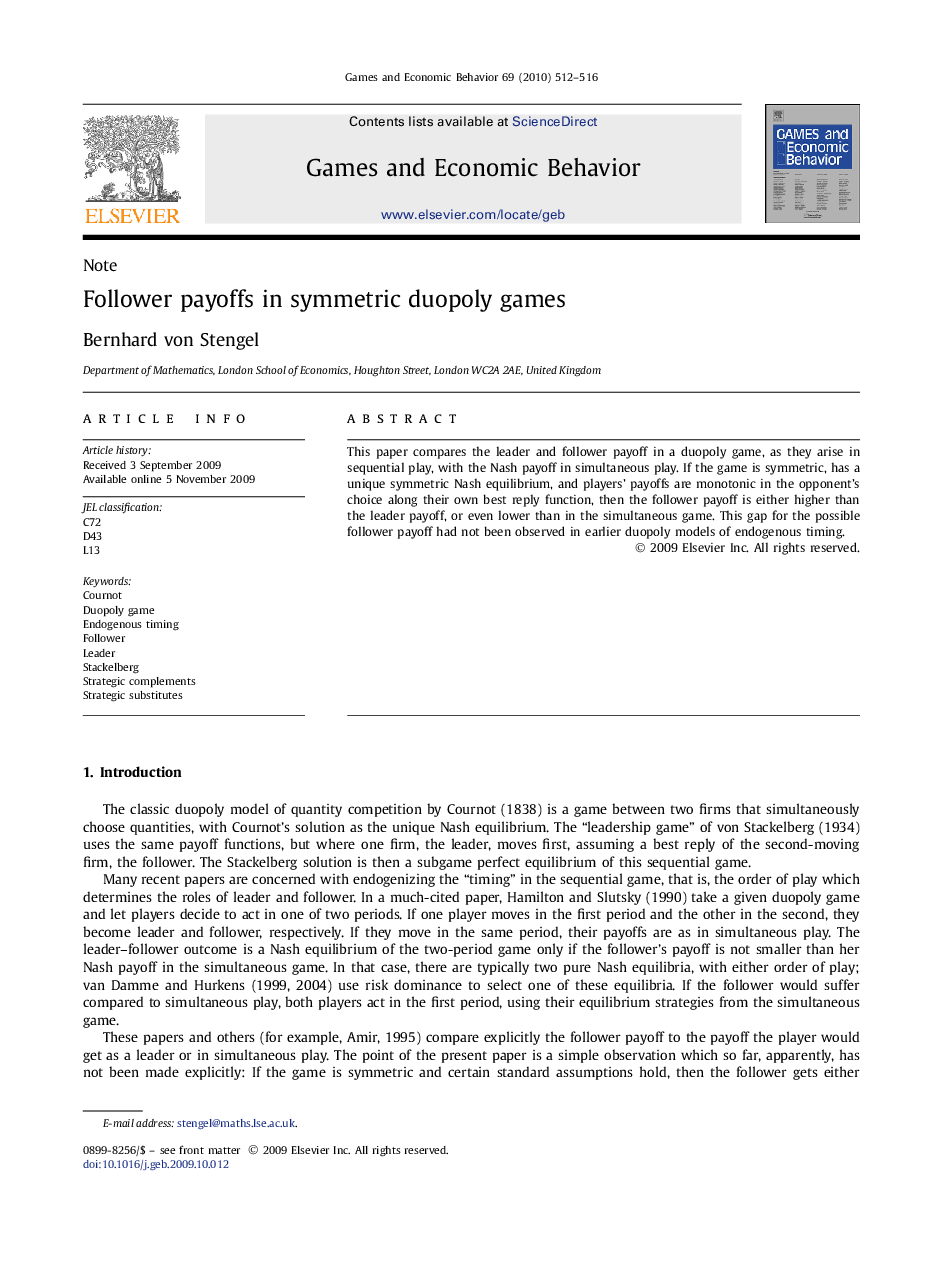| Article ID | Journal | Published Year | Pages | File Type |
|---|---|---|---|---|
| 5072431 | Games and Economic Behavior | 2010 | 5 Pages |
Abstract
This paper compares the leader and follower payoff in a duopoly game, as they arise in sequential play, with the Nash payoff in simultaneous play. If the game is symmetric, has a unique symmetric Nash equilibrium, and players' payoffs are monotonic in the opponent's choice along their own best reply function, then the follower payoff is either higher than the leader payoff, or even lower than in the simultaneous game. This gap for the possible follower payoff had not been observed in earlier duopoly models of endogenous timing.
Keywords
Related Topics
Social Sciences and Humanities
Economics, Econometrics and Finance
Economics and Econometrics
Authors
Bernhard von Stengel,
